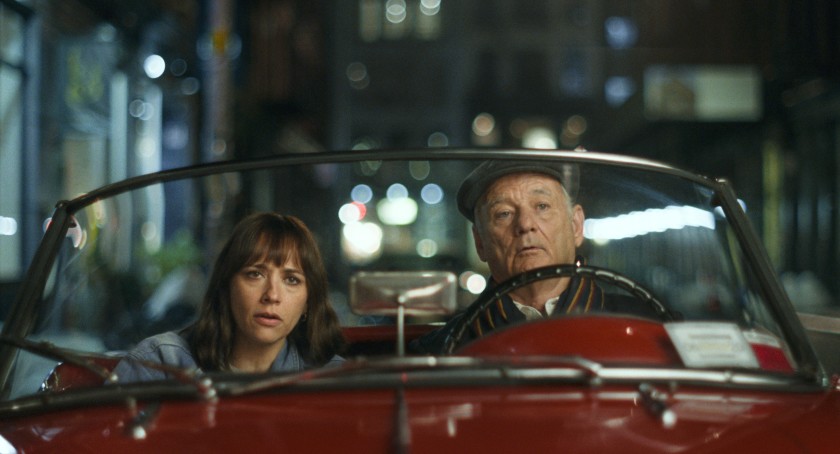I once wrote about how Crystal Moselle was helping reinvigorate and revive the cinematic world of New York City with her essential film Skate Kitchen. Moselle showed youth at play within a city that has grown and changed with them as they matured alongside it. This is a generation of New Yorkers evolved from the rubble of 9/11, who trod the streets of the financial district to occupy Wall Street, who have protested injustices and stood up for the rights of others. They’ve witnessed the gentrification of Black neighbourhoods and the oppression of diverse cultures through white culture creep.
While not every film set in or about New York needs to reflect the real life transformation of the city, the overwhelming visual history of the city becomes an undeniable artefact in the minds of viewers when watching modern films about New York. It’s hard to escape the echoes of the images of people covered in ash fleeing from the World Trade Center buildings, or the defiant statue of a girl standing down the angry bull in the financial district, and as such, when the image of a wealthy white man driving his daughter recklessly through the streets of New York in a red sports car floods the screen in Sofia Coppola’s latest On the Rocks, you can’t help but recoil in disgust at the presentation of wealth on screen.
To be clear, Sofia Coppola’s films have always been about the wealthy and the privileged. As they say, write what you know, and sure enough, this is what Coppola knows all too well. I’ve long admired her work, respecting the manner she makes the lives of the rich and privileged feel grounded and human. However, with On the Rocks, Coppola has crafted a film that is devoutly mundane and supremely out of touch with the world at large.
Here, Rashida Jones plays Laura, wife to Marlon Wayans successful tech-business guy Dean, daughter to Bill Murray’s wealthy white misogynist dad Felix. Laura’s a writer who writes best in the depths of night, yet, she finds herself exhausted by busy days of caring for daughters, and as such, her ledger remains empty. Dean’s constantly travelling, and spending an awful lot of time with his young, new colleague. Laura’s mind ekes towards the notion that he’s having an affair, a thought that the time-rich Felix is all too eager to stoke, leading the two on a journey to catch him in the act.
What sounds like the basis of a fun, comedic caper of a father and daughter snooping around trying to find the truth about a husband, turns out to be a deeply tedious and bland affair of wealthy folks throwing money around for the purpose of avoiding a basic question of ‘hey, you’re not cheating on me are you?’
Coppola has completely bought into the cult of Bill Murray, the king of cool, and while this is a film about Jones’ Laura, it’s Murray’s Felix that does most of the talking. Coppola’s films have a trademark opening shot that sets the tone of the film, and On the Rocks Murray commentary about his daughter being his and his alone, regardless of who she marries, is a prime example of this. Throughout the film, he erupts with random quips about the way men are attracted to women, and how women should physically look. Murray’s ability to make the moronic sound profound is used to notable effect here, and thankfully Jones deadpan glare works as a suitable foil for his male-focused factoids.
As Felix picks up Laura for a drive through New York, Felix regails his driver of the story about how Laura was named after Frank Sinatra’s song, Laura. He whistles, and Laura tries to join him, but fails. She declares, ‘for some reason, I stopped being able to whistle after having kids’. It’s an odd statement, but one that reaffirms that while On the Rocks is technically about a marriage seeking conflict resolution, the dialogue continually reminds that this is a film about the allure and arousal and machinations of the body of women. Felix remarks on the physique of waiters, asking if they’re ballet dancers, or later, admiring a teachers stance. To Felix, women exist to be looked at and commented on, and that’s that, a foolish statement that is highlighted by his equally foolish remark that he’s ‘going deaf’ and that he ‘can’t hear voices of women anymore’.
It would be something if Coppola were critiquing Felix and his ilk, condemning men who see other married men as inevitable cheaters, but instead, there is a distinct lack of awareness to the tone of the film that marrs any sense of commentary on its characters. This further leaves Laura out to dry, and worse, without agency in her own narrative, as she merely has to sit there and give a frustrated look whenever her fathers says something annoying.
On the Rocks feels like Coppola’s attempt at a breezy, casual film, and while that tone is there, it also feels otherworldly, as if these characters exist outside of our current timeline. As Felix drags Laura around New York, they visit wealthy cordoned off tearooms for cocktails, they eat curbside caviar, he funds private investigators and monitors partners bank accounts at a whim. This kind of extravagance used to be aspirational, something for the meek to hope they could attain by squirreling away pennies for decades to get just a spoonful of black caviar, but now they’re just luxuries of life that are wholly unattractive. Any notion that protests or tragedy had struck these avenues is washed away down the drains in a sea of champagne.
Like the past few years, this year has shown how diametrically opposite to the real world celebrities really are. While Laura has a BERNIE 2016 sticker on her kitchen door, you get the impression that she’s a footstep away from criticising the people who flood the streets in protest of civil rights abuses. The characters move through their own lives with a nauseating level of privilege that makes you feel like you’re drunk with a killer headache delivered by backyard whiskey.
These characters aren’t people, they’re fact machines dictating a binary lineage of humanity where men are attracted to women because of genetics and that’s it. It feels reductive and soulless. A scene where Felix talks his way out of a police fine for speeding further highlights lack of social awareness in On the Rocks, making it feel like pure science fiction.
To be fair, not every film needs to have a mention of privilege or success, but it’s harder to digest these kinds of sojourns into the lives of the wealthy in the current era we’re living through. Because this is all that On the Rocks has to offer, it transforms what should be a polite film about a bonding relationship with father and daughter into a work of frustration and tedium.
At its conclusion, the theme of the film appears to be that ‘men ruin everything’, which, again, given the state of the world, we can’t help but shrug and say, yeah, so what? Maybe I should be glad that these characters are socially detached, because there’d be the distinct possibility that Coppola might write about social justice in a way that suggests she’s just made the biggest discovery of all time.
Coppola’s films have often been about the rich and wealthy, but at least her past efforts have portrayed interesting people. Where she transformed the city of Tokyo perfectly in Lost in Translation, Coppola removes the humanity from the bustling city of New York, making it neither feel old or new, just bland. These aren’t even insufferable characters, they’re just flat boring. Maybe the worst thing about On the Rocks is that it doesn’t even feel like a Sofia Coppola film, but rather a cheap imitation of her work. A major disappointment is an understatement.
Director: Sofia Coppola
Cast: Rashida Jones, Bill Murray, Marlon Wayans
Writer: Sofia Coppola




